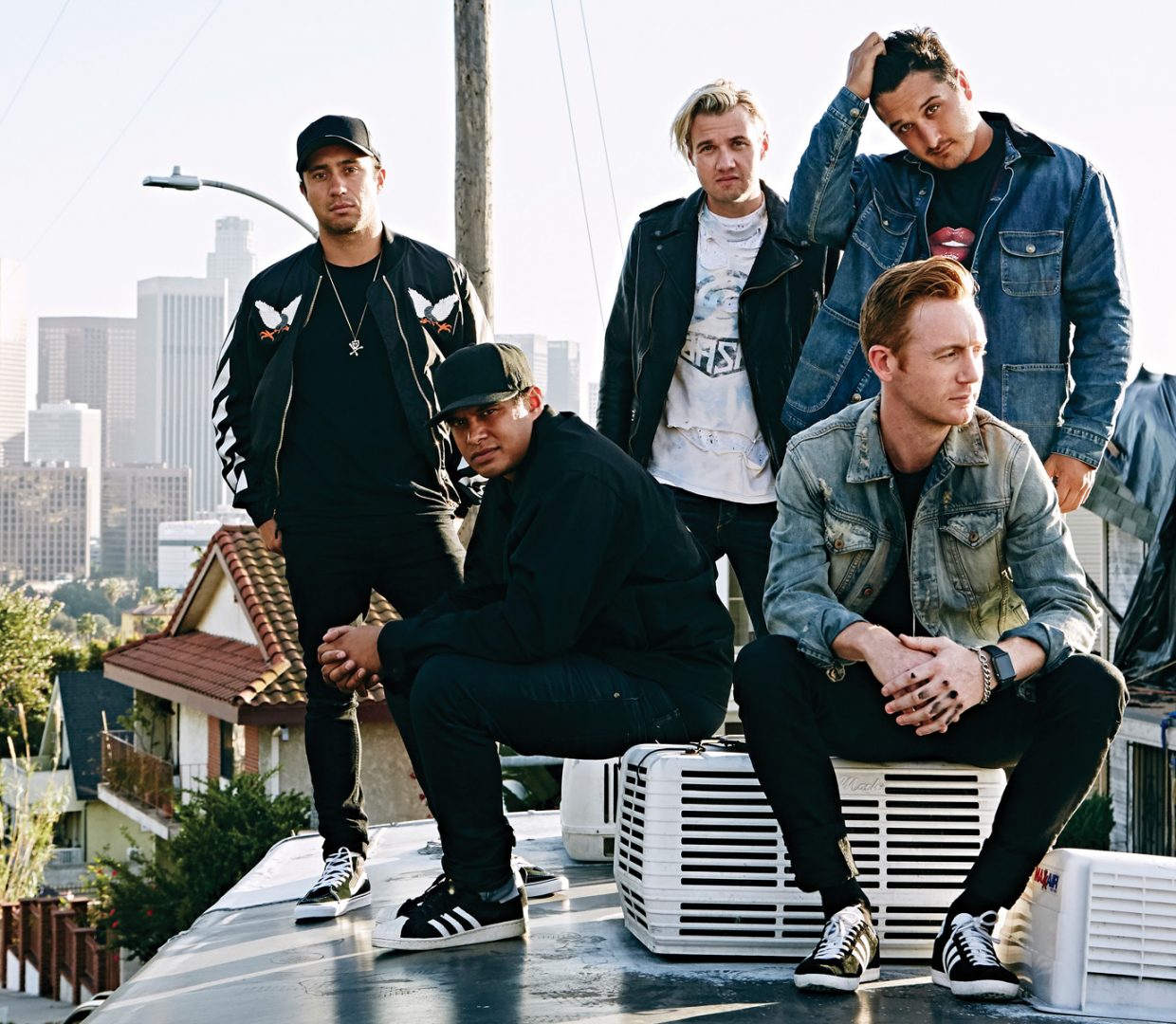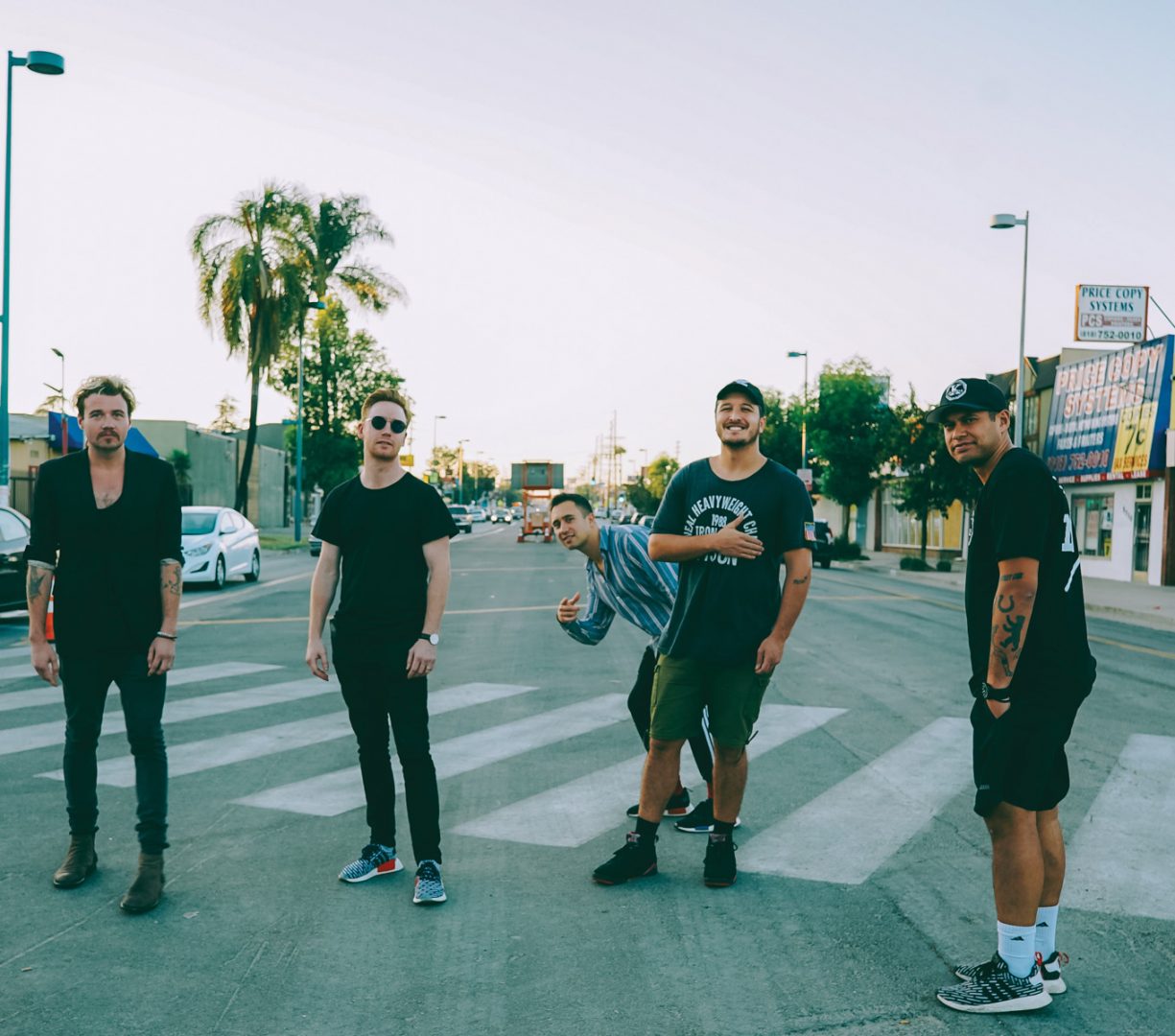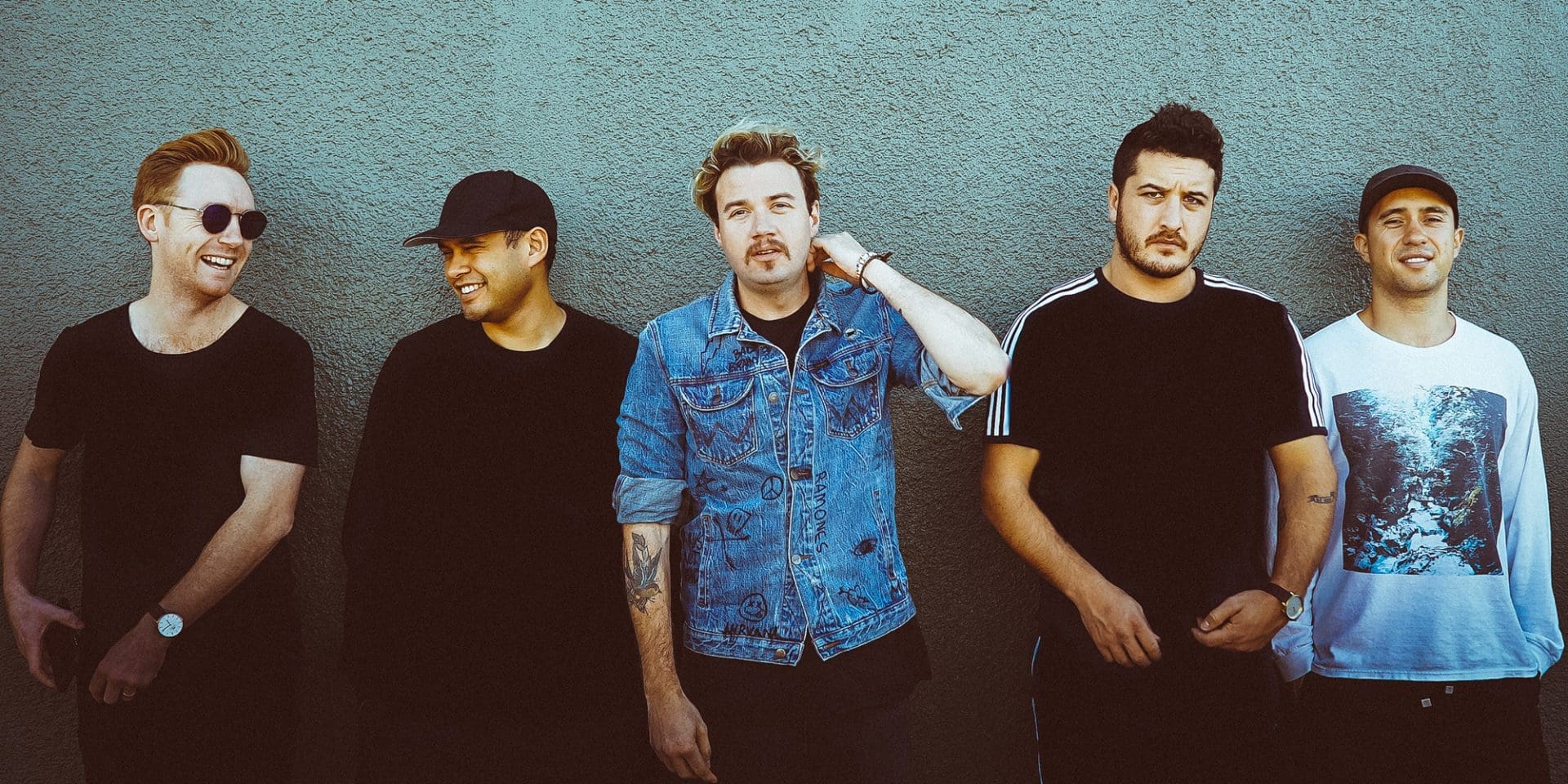Six60 – The Powerhouse
A long time ago, in my teenage years, I walked the world as a mere traveller – a soul-searcher – learning core values in becoming a man. My best mates? a packet of Doritos and my blue Apple iPod. I learnt friendship through The Beatles. I learnt respect from Rolling Stones. Loyalty from The Police, and most importantly not forgetting where I came from – my ‘roots’, if you will. I learnt that from New Zealand’s own powerhouse five-piece band, Six60.
Formed in 2008, Six60 is one of those bands you just can’t forget. Their songs are stadium anthems, to put it lightly. Powerfully worded, wonderfully crafted and alive with such breath, each of their songs are hotlisters on many radio stations. Comprising of five mates who met in Dunedin, the band has evolved from a small-town chatter to a world-wide musical name. Their self-titled debut album was released in 2011 and since then, they’ve climbed the charts to hit the number one and number two spot on numerous music charts. They’ve won numerous music awards and have travelled to pretty much every corner of the globe, performing at pretty awesome venues. Last year at the VNZMAs, they dominated the night, taking five Tui awards, and rocking the crowds with ‘Don’t Give It Up’. When I was offered the opportunity to chat to lead singer, Matiu Walters and synth-whizz, Marlon Gerbes from the band, I fell into a serious fanboying coma. We sat down together and chatted about inspirations, immortality and not forgetting those roots, no matter what.
Tell me about how the band started…
Matiu Walters: We met in Dunedin. A few of us were at Otago University, others were working. We met each other in different places; I lived with one of them, played rugby with a few of the guys, and it all kind of culminated when we went to a Kora concert at the Union Hall in our first year in Dunedin. Eli, who is our drummer now, he was a bouncer at the show and a couple of us used him to sneak into the show.
He led us up these stairs which put us in the green room and we bumped straight into Kora and just got talking, they were so nice. We were saying how much we wanted to follow in their footsteps, create a band, as we were young, Maori boys at the time too. All we needed was a drummer and they’d been talking to Eli before about how he played the drums. So they pieced it all together and the next day we were at 660 Castle Street playing Kora, Katchafire, Black Seeds, Trinity Roots, all local Kiwi bands. And that’s how we came up.
Six60 is quite a unique name, how did you come up with that?
Marlon Gerbes: It was at the flat that some of the boys were in – 660 Castle Street.
Being New Zealanders, is it important to keep to your roots in your music?
MW: It’s always been important for us to be true to ourselves and be honest. That, as a consequence, makes New Zealand shine through in the music because that’s just who we are and we can’t escape it. So, I think we carry New Zealand into a lot of our decisions whether we are aware of it or not.
Describe a normal day in the life of Six60…
MG: We’re quite different individually. We try and get together once a week or two, depending on what’s going on. But for me, I’m working on the art, practicing my instrument, getting the mind right, making music and trying to keep that as a habit.
Where do you get your inspiration from?
MW: I feel like you need to live a life in order to have something to write about. So it’s really a to and fro, back and forth; we’re really busy at times and then we have downtime and it’s a constant search to try and stay on top of it and stay driven.
At the end of the day, we’re just trying to add tools to the tool box, figure out ways to be great because we want to be remembered forever. We want to be immortalised somehow.
That question will be answered different week by week, to be honest but right now we’re busy preparing for the music awards that are happening, recording new music, we’re flying around a bit.
But the constant will just be to continually strive for progress, just trying to move forward in whatever way possible.
Who are your biggest musical influences?
MG: From New Zealand, Fat Freddy’s Drop, Shapeshifter, Trinity Roots. Going abroad, I’ve been really studying the Beatles lately. They’re a band that had great successes, they were innovative, they revolutionised music and they were relevant the whole time.
I’m quite into hip hop as well, the new emo/hip hop stuff that’s coming out. Some of it’s a bit off but some stuff I like. It draws from my younger influences of punk and stuff like that.
MW: Locally, Che Fu was a big influence for me growing up because I grew up in Auckland and he was brown like me so he was something to relate to. He was doing urban music so he was really influential in my life growing up.
Around that time, growing up I always listened to Al Green, James Brown, Aretha Franklin, and other Mo-Town musicians and that’s what helped me fall in love with singing. That moved in to neo-soul; D’Angelo, Gil Scott [-Heron], Lauryn Hill, that sort of stuff. Those voices have really been my biggest influences. 
How do you think that shows through in your music?
MW: Oh man, I don’t know. It’s funny with writing songs because you go away and you study up, trying to find things to add to your arsenal, only to get into the studio and forget them all. Once you get into the studio, you’re just running off intuition, really.
So it’s kind of hard to pinpoint when a particular thing will influence you at a particular time. You kind of just go in open and flow and things just pop up. That’s what’s so crazy about music is that s**t just comes out of thin air. I don’t know how it works but ideas just come, it’s like you’re tapping into some vibration or source and I just try and manage my time or my day so when I am in the studio, I can tap into that source as easy and as frequently as possible.
The biggest mistake I made was thinking that it came from me and then there was a well that dried up. When I had the revelation that, ‘No, it just comes through me’, everything really changed and it became easier.
Your band is one that mixes genres, is it easy for you guys to make that work?
MW: It just happened naturally that way. We are just five different personalities that for some reason when we band together, it creates a chemistry and that was the natural product of having these five people together.
So it comes together easily in that regard but just how different we are allows us to approach music a little bit differently and we’re honest in our love for all types of music and our desire to allow all our influences to clash at the same time.
MG: It’s going to be hard for the people outside who are trying to market us or push us around because they don’t quite know what to push us to as musicians. But that’s okay, we’re sticking to our guns.
MW: I always hope that it comes through that you can hear the attempt to try and find something. Through the collection of our careers from A-Z, you could probably timeline the evolution of it all.
I like the idea of allowing people to witness the evolution as it’s happening right in front of their eyes as we continue to grow better and challenge ourselves because I feel like that is true honesty.
As opposed to going to a dark room and creating this whole thing without anyone seeing it and then presenting it. I like the natural way of how we go about things.
How do you find touring and travelling around New Zealand?
MW: It’s pretty awesome and special. All of New Zealand feels like a home game for us now. For the last 8 years, we’ve been touring constantly. We started as a live band before we were a studio band, so we went the reverse to most musicians. But yeah, love playing in New Zealand. We’re just doing one this summer, which makes the job a bit easier.
MG: Going overseas, you build an appreciation for home. New Zealand really is a great country, man. Always good to be here.
What’s the best piece of advice you’ve been given?
MG: For me, it’s just working on yourself. Figuring out what makes you tick, figuring out what you really feel and what you really want and all the things that you’re conditioned to and not necessarily serve you. So yeah, working on yourself and once you get on top of that, everything starts opening up.
MW: Nothing changes if nothing changes. That really resonated with me for a multitude of reasons. Not to be scared to just take the leap and not fear the consequences. It’s the action of you making that decision that will last.
What’s your definition of success?
MG: Being true to yourself, being true to your art and I would probably say mana.
MW: Mana and integrity is a big part. There are so many [definitions], depending on what mood I’m in. Sometimes, I just want to get the paper and get rich. It depends on if my ego is talking or my true self is talking and that would be two completely different things.
Success, it’s a hard one. I would like to say just being happy but I’m still trying to figure out how to do that.
So are your plans for the future?
MG: We like the idea of pioneering something, whatever that is. And working on creating some art that’s never been heard before. But also, just not being limited to music as a creative, just being a full creative in every sense. And obviously, trying to get to the top of this game, the music game.
MW: I’m just trying to be the man. It takes a lot of things, it takes self-understanding. You really need to know yourself before you can really go about making real, honest, authentic decisions with music.
And understanding that an artist is an artist of life, not just of music and you have to be the master of all facets. I just want to make beautiful music that changes as many lives as possible. And be remembered forever, I want to be immortalised.
What does the top of the music game look like to you?
MG: Combine the Beatles, Rolling Stones in terms of longevity. Rolling Stones have been able to do it until they’re nearly falling dead and they’re still playing stadiums. And the conviction of Bob Marley. Yeah, succeeding is that, whatever that is.

